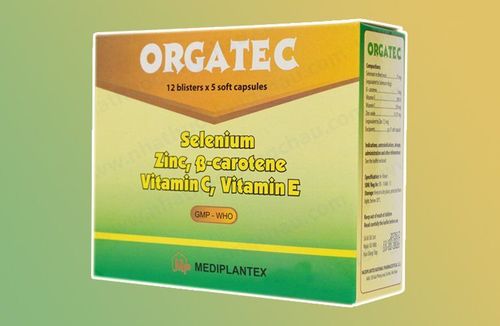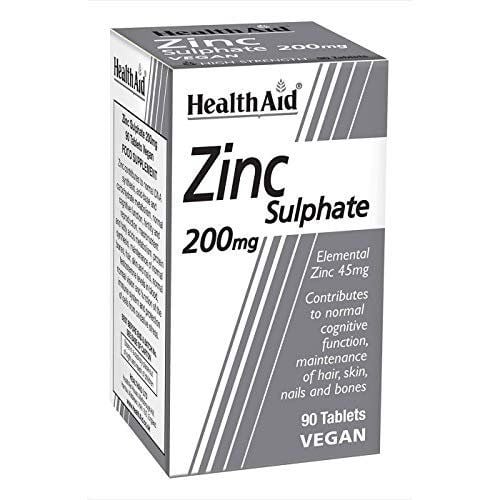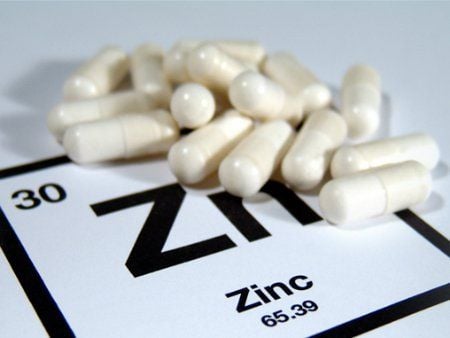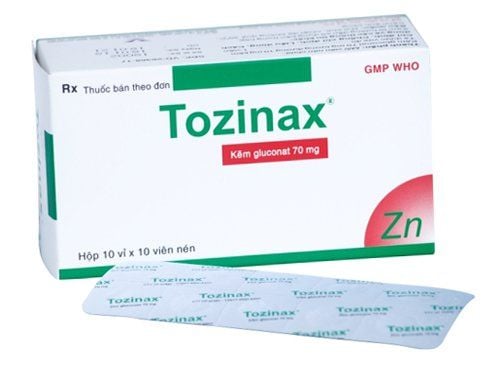This is an automatically translated article.
Zinc deficiency will affect physiological functions in the human body. Here are some signs of zinc deficiency in adults as well as signs of zinc deficiency in children.1. Causes of zinc deficiency
Zinc is an indispensable trace mineral for the development of children. Zinc's role is to synthesize protein by enzyme mechanism, supplementing with zinc helps promote the development of bones, muscles and brains of young children. Here are some causes of zinc deficiency:
Diet : Due to low zinc in food or because phytate and fiber in foods interfere with zinc absorption.
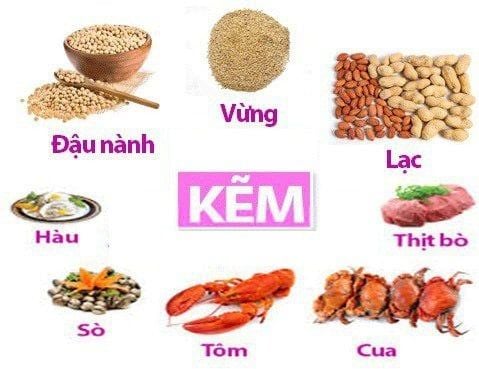
Kẽm là một loại khoáng chất vi lượng xuất hiện trong nhiều loại thực phẩm khác nhau
Exclusive breastfeeding: Symptomatic zinc deficiency is rare, if present, in premature infants, because these mothers have very low zinc levels in their milk. In which, the signs of zinc deficiency in women are quite obvious, in which the main clinical manifestation is dermatitis.
Other causes include :
Crohn's disease Cystic fibrosis Sickle cell disease Liver disease: severe and chronic. Intravenous zinc deficiency: nephrotic syndrome, diabetes insipidus... Athletes
2. Warning signs of zinc deficiency
Zinc deficiency causes hair loss
Along with recurrent infections, hair loss is probably one of the main symptoms we have to think about when zinc deficiency is suspected.
Zinc is an essential mineral for cell multiplication and protein absorption, functions that are important for thick, lustrous hair.
Brittle nails and white spots
White spots on the nails - sometimes called Beau's lines - are one of the important signs of a zinc deficiency.
Nails can grow slowly, become brittle and break easily. This is because the body needs a steady amount of zinc to grow tissues and cells in the nails, common nail problems can occur, the most severe manifestation is white spots.
Poorly shiny teeth
Zinc is essential for healthy teeth and if you have low zinc you won't have shiny white teeth, which can easily chip and become unhealthy.
Zinc is an essential element and is naturally present in plaque, saliva and tooth enamel.
If you have a zinc deficiency, you may notice a sensitivity to smell, a change in taste, a white tongue and may be more prone to mouth ulcers plus gingivitis - most common in people who lack zinc in their diets.
Mouth ulcers
Zinc deficiency in the diet can also cause recurrent mouth ulcers. Many studies have shown that low zinc intake can increase the risk of mouth ulcers, and patients with low zinc levels in their machine often have recurrent episodes of mouth ulcers.
Acne or other skin problems
It is theorized that people with acne may be deficient in zinc and that some acne treatments and antibiotics often contain zinc.
A latest study shows that 54% of people with acne have low zinc levels.
People with zinc deficiency skin also often have scaly spots due to acne that do not heal or take a long time because zinc is essential for wound healing.
Weak bones
Everyone knows calcium is needed for bones, but zinc is an essential mineral for bone growth and formation, thanks to its function in cell growth and development, as well as collagen renewal. needed to make bones healthy.
Children of vegetarians or strict dieters may be deficient in zinc, leading to problems with bone growth in childhood and adolescence.
To find out the state of your bones, you can ask your doctor for a DEXA scan to measure bone density (most doctors will not order a zinc blood test unless a serious deficiency is suspected) .
3. How to provide enough zinc daily?
Our bodies don't store zinc, so we must get it from food and if you're vegetarian or don't eat a lot of red meat, you may be deficient.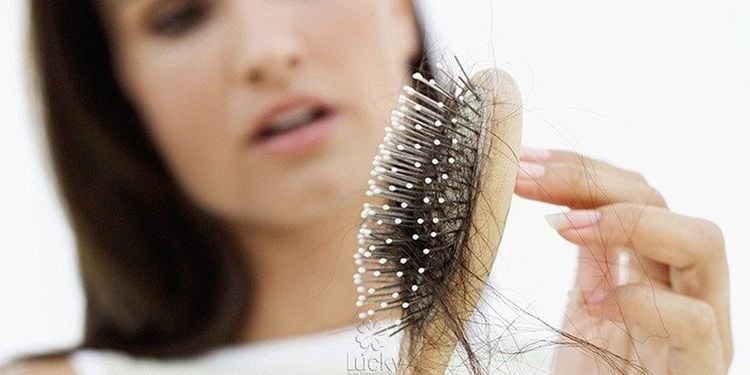
Tóc rụng là triệu chứng báo hiệu nguy cơ thiếu kẽm trong cơ thể
Red meat like beef, pork and lamb are among the best sources because the zinc in these foods is highly bioavailable - meaning it can be absorbed more easily by our bodies than from other sources . Experts recommend eating up to 500g of cooked red meat per week. 70g per day or 100g five times a week is a good guideline.
Red meat cooked for a long time has a higher zinc content than meat cooked in other ways. Additionally, new evidence suggests that drinking milk may help absorb zinc from high phytate foods such as lentils and whole grains. Great advice for vegetarians.
Whether you're a red meat eater or not, you don't need to have a wide variety of foods to match zinc to get the 7mg you need a day for wellness. Check out the table below to see exactly how much zinc you get from each food day.
Whether you're a red meat eater or not, you don't need to eat a lot of zinc-containing foods to get the 7mg you need each day. Check out the table below to see exactly how much zinc you get each day from food.





